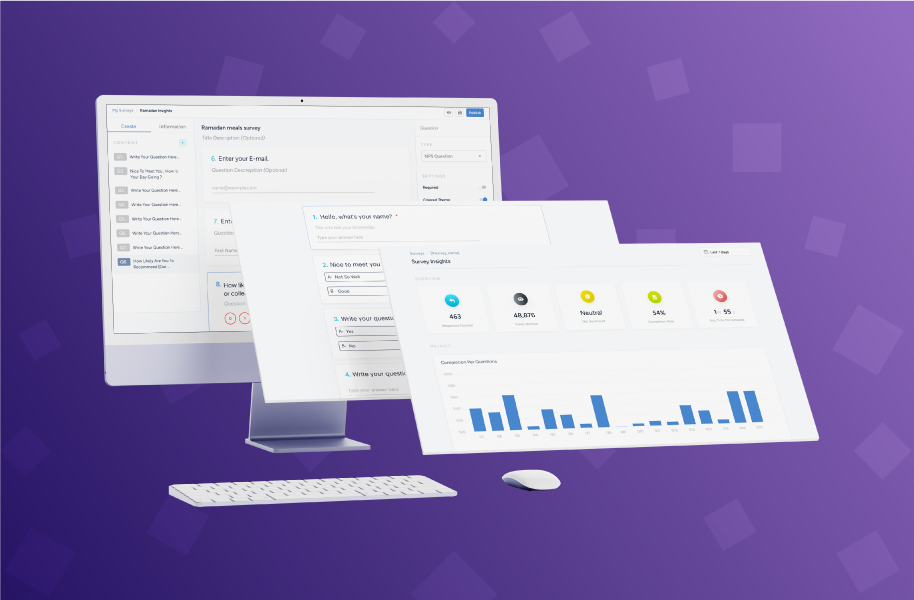
Never miss an important conversation about your brand again
Generate more leads from social media with impressive conversion rates
Connect with top influencers who your customers love
Measure your marketing campaigns with unparalleled precision
Take your customer satisfaction performance to the next level
Deliver top-notch content that generates traffic and sales
Stay ahead of the competition—all the time
Detect and fix problems before they become a pain
Gain access to never-before-seen social media insights for your brand
Never miss an important conversation about your brand again
Generate more leads from social media with impressive conversion rates
Connect with top influencers who your customers love
Measure your marketing campaigns with unparalleled precision
Take your customer satisfaction performance to the next level
Deliver top-notch content that generates traffic and sales
Stay ahead of the competition—all the time
Detect and fix problems before they become a pain
Gain access to never-before-seen social media insights for your brand

In today's highly competitive market, building a strong brand has become a prerequisite for entrepreneurs and companies. This is especially important as it's now easier than ever for customers to replace brands if they are dissatisfied with a product.
On the other hand, having a strong brand can lead to a good reputation and the ability to win back customers, ultimately resulting in increased revenue.
However, as an entrepreneur, the most important question is how to measure the strength of your brand and the success of your business.
This is where surveys come in as a powerful tool that can be used to determine the success of a project through data analysis. Surveys can help entrepreneurs better understand the vision of consumers and meet their needs, which in turn can lead to improved product or service quality and enhanced trust in the brand.
Survey is defined as the process of questioning and collecting opinions from a specific group of target people for the purpose of collecting data about a service or product, and the primary goal of these surveys is to understand the needs of customers and assess their satisfaction with the service or product.
In order to ensure accurate results when conducting your survey, it is important to follow a methodology or a set of steps, which include:
The Importance of Conducting a Survey
Conducting a survey of entrepreneurs and brands is a key step in improving business performance and increasing the chances of success, here’s why:
Surveys are a powerful tool for identifying the strengths and weaknesses of products or services, allowing for improvements that meet customer needs and increase satisfaction.
Surveys are also important for engaging with the public, gathering opinions about the products or services offered, and using this feedback to enhance the overall customer experience.
Additionally, surveys help in analyzing the market by identifying customer needs and preferences, which can inform the development of new products or services that better meet those needs.
To understand the significance of questionnaires in research, it's important to first define what a questionnaire is.
According to the Arab Journal of Science and Research Publishing, a questionnaire is a research tool consisting of a series of questions designed to collect useful information from respondents. These questions can be written or oral and can be administered online, by phone, on paper, or in person.
Questionnaires can be categorized as either open-ended or closed-ended. In an open-ended questionnaire, respondents are free to provide any level of detail they wish in their answers, whether short or long. In contrast, a closed-ended questionnaire provides respondents with a set of predefined responses from which to choose. In some cases, questionnaires may be a combination of both open and closed formats.
Questionnaires are an essential tool in research because they enable the collection of data from a large number of people quickly and at a relatively low cost. Unlike other data collection methods, questionnaires do not require an interviewer to physically gather the data, nor do they require any special equipment or technical expertise to administer, making them more efficient and cost effective.
In addition to the benefits mentioned earlier, questionnaires offer several other advantages in research, including:
Now that we've covered the steps of conducting a survey and its importance, it's important to explore the different methods of opinion polling. These methods include:
This method relies on the use of email, social media, or survey sites to collect opinions from individuals.
The survey methods also encompass different types of surveys, which we will discuss in the following paragraphs.
Lucidya's survey product is a powerful tool for collecting data from a specific target audience in order to gain insights on various topics. This tool is particularly effective for gathering feedback from customers, market audiences, or employees.
Lucidya's survey tool allows you to efficiently manage thousands of user insights by aggregating all the data collected from customers and markets into simple dashboards. This tool helps you effectively manage the data you collect, without having to sift through millions of answers.
Lucidya's polling products offer a range of powerful features to its users, including:
Order Lucidya's free demo now and access our highly effective surveys
Conclusion
Surveys are a vital tool for businesses to comprehend the needs of their customers, predict their future desires, and analyze data to develop products or services that align with those needs. This can lead to an improved customer experience and ultimately result in greater success and differentiation from competitors.